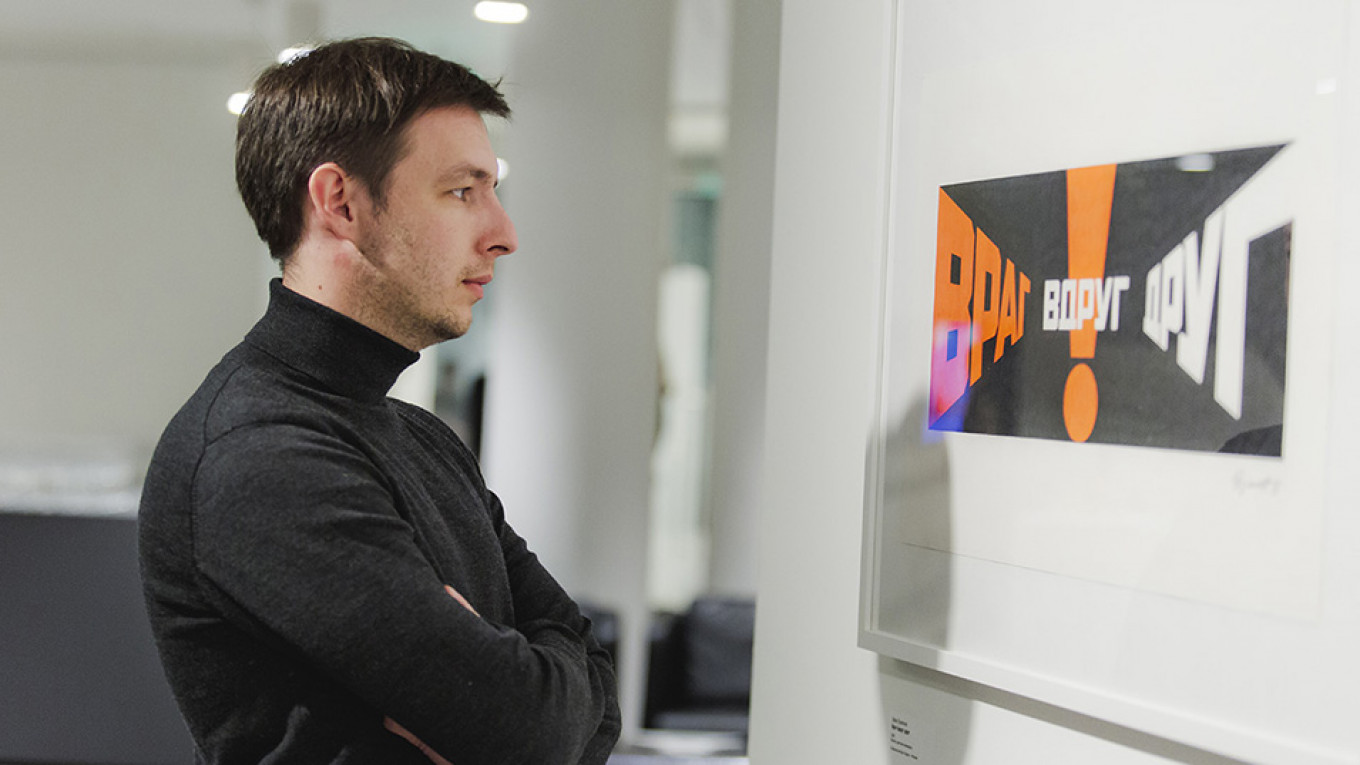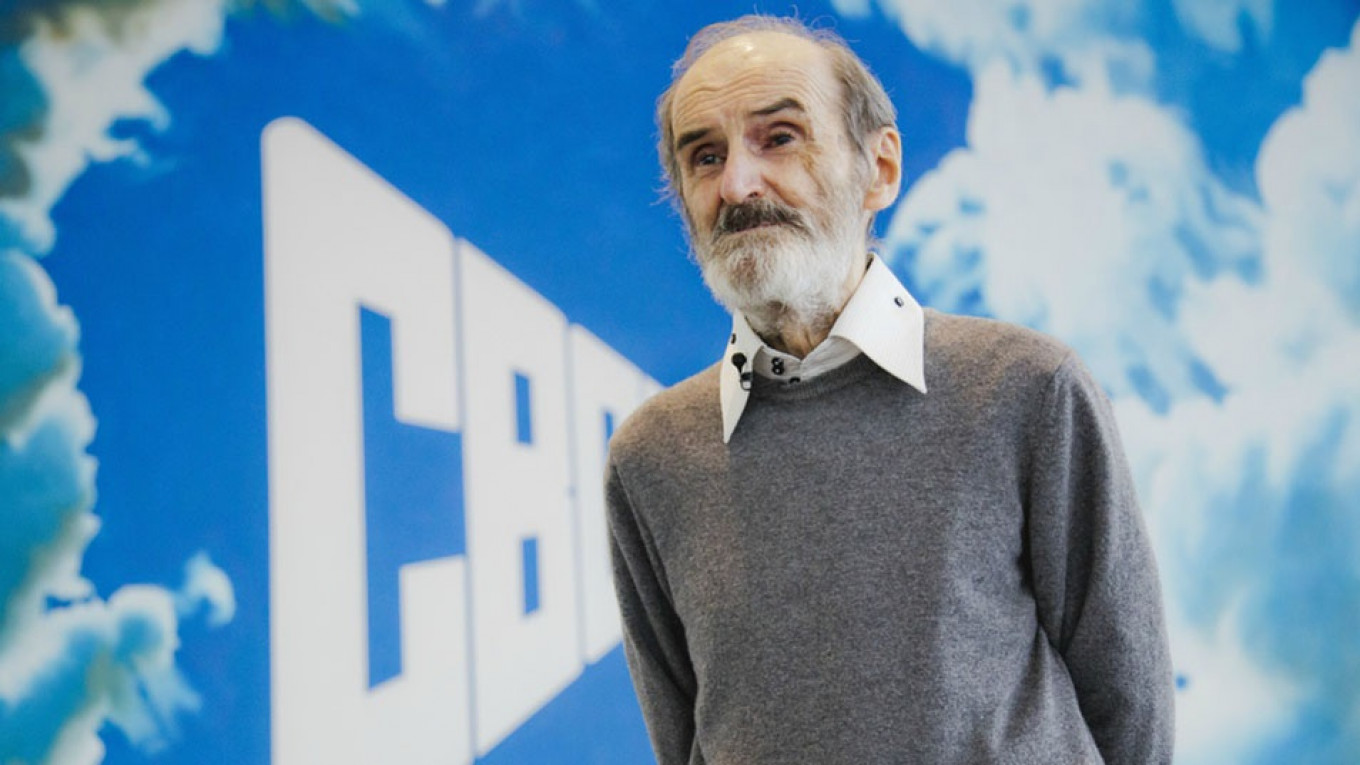The Yeltsin Center in Yekaterinburg has been showing a unique exhibition of drawings by Erik Bulatov, one of very few contemporary Russian artists who has become internationally renowned.
The Yeltsin Center opened in 2015 and quickly became one of the most popular sites in the city. Today it’s much more than just a museum celebrating democracy and the freedom of the 1990s and one of its champions, first President of Russia, Boris Yeltsin. The Yeltsin Center is an important cultural and public space, with a contemporary art gallery, an independent bookstore that doubles as an educational center, a theater, a concert hall, several shops and cafes and even a nightclub.
Celebrating an artist and artistic freedom
Last fall Erik Bulatov turned 85. The Yeltsin Center is the only Russian institution that organized an exhibition to celebrate this milestone in the artist’s life and career. Bulatov, along with Ilya Kabakov and Viktor Pivovarov, is one of the most important figures in Moscow conceptualist or non-conformist art of the 1960s. His trademark style is immediately recognizable: large slogans marching across a landscape or cityscape.
The exhibition at the Yeltsin Center is entitled “Freedom Exists” and it’s a reference to his work “Freedom,” which is held in the Center’s history museum. The exhibition consists of more than 150 drawings from the artist’s large collection made from 1955 to 2018. “This massive number of drawings was divided, not by periods of time, but by thematic group. There are some sketches for paintings, some drawings of nature, some drawings for book illustrations. This is how everything is represented at the exhibition, starting from my student drawings and up to the latest ones that I am doing right now,” Bulatov told The Moscow Times.
The exhibition culminates with a large scale photo of one of Bulatov’s latest works: a sculpture, which says “Vse Ne Tak Strashno” (It's Not All So Terrible), installed at the decommissioned iron foundry in Maubourguet, France. “It is important to the context here, since it’s a summing up of sorts, a closure,” said Bulatov.

A favorite son
Erik Bulatov was born in Yekaterinburg in 1933, but he only lived there until he was three, when his parents moved to Moscow. “Then we came back during the evacuation, but only for a little while -- only about four months. All I remember is the school [I went to] and that’s it. I somehow did not remember the city at all.” Erik’s next visit to Yekaterinburg took place when he came to paint a special work for the Yeltsin Center.
“I was invited because I was born in Yekaterinburg. I don’t know if there were any other reasons, because the offer came to me, not the other way around. I thought about it for a while and agreed, because Yeltsin's name means something to me. For me it’s connected with that heroic day when there were tanks in Moscow, when there was a real danger that everything would once again collapse and return to the past. And when he spoke and managed to take power into his hands, he was the hero of the day. It was already starting to feel hopeless — Iran had recognized the new government and the tanks were in place. And then suddenly it all ended. That’s why for me, Yeltsin is forever the hero of that day.”
The final hall of the Yeltsin Center’s history museum is called “Freedom Gallery,” which talks about civil rights and freedoms in the new Russia. There are quotes from Russia’s dissident poets and writers and glass walls provide panoramic views of the city. But the centerpiece is, of course, Bulatov’s painting “Freedom.” The artist emphasizes that the painting doesn’t necessarily reflect his ideas about the early 1990s: “Freedom is not here in this room where we are. Freedom only indicates the direction of the path.”
“Freedom Exists” is on view at Yeltsin Center till January 20, 2019
3 Ulitsa Borisa Yeltsina. yeltsin.ru
A Message from The Moscow Times:
Dear readers,
We are facing unprecedented challenges. Russia's Prosecutor General's Office has designated The Moscow Times as an "undesirable" organization, criminalizing our work and putting our staff at risk of prosecution. This follows our earlier unjust labeling as a "foreign agent."
These actions are direct attempts to silence independent journalism in Russia. The authorities claim our work "discredits the decisions of the Russian leadership." We see things differently: we strive to provide accurate, unbiased reporting on Russia.
We, the journalists of The Moscow Times, refuse to be silenced. But to continue our work, we need your help.
Your support, no matter how small, makes a world of difference. If you can, please support us monthly starting from just $2. It's quick to set up, and every contribution makes a significant impact.
By supporting The Moscow Times, you're defending open, independent journalism in the face of repression. Thank you for standing with us.
Remind me later.






